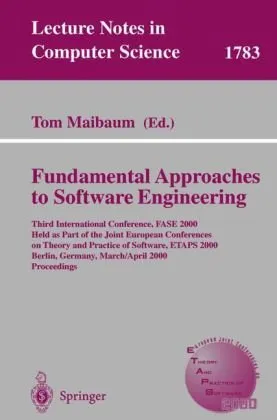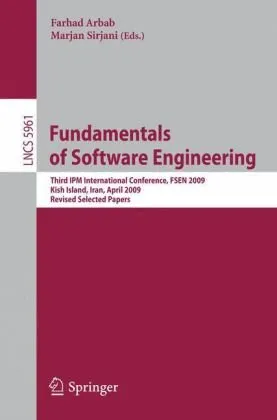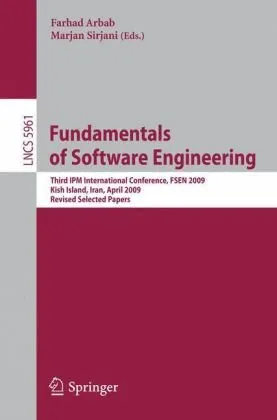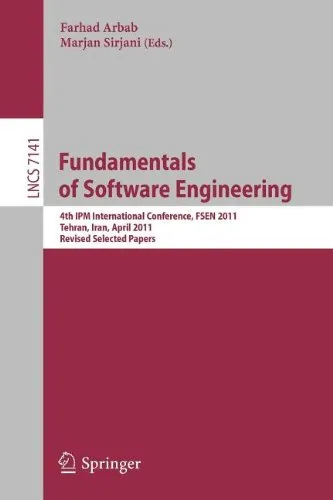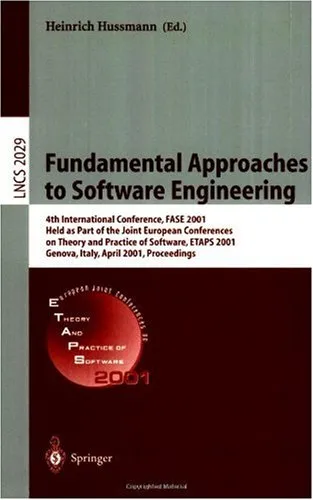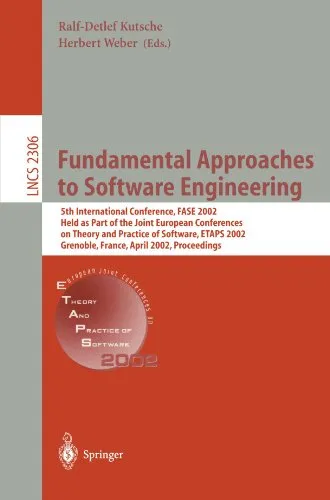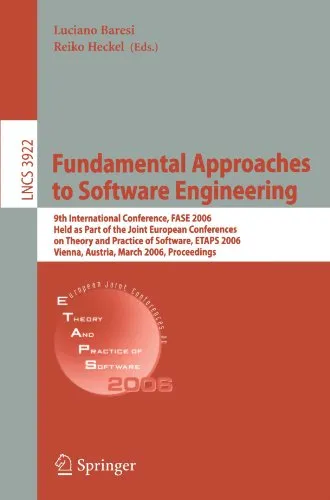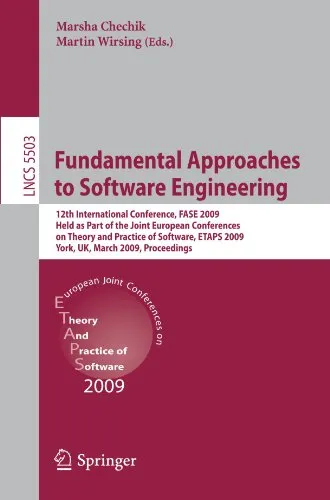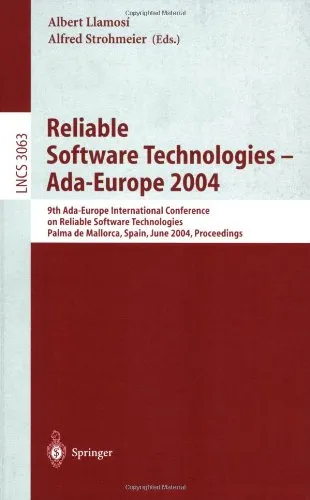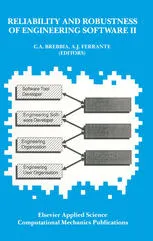Fundamental Approaches to Software Engineering: Third International Conference, FASE 2000 Held as Part of the Joint European Conferences on Theory and Practice of Software, ETAPS 2000 Berlin, Germany, March 25 – April 2, 2000 Proceedings
4.0
Reviews from our users

You Can Ask your questions from this book's AI after Login
Each download or ask from book AI costs 2 points. To earn more free points, please visit the Points Guide Page and complete some valuable actions.Related Refrences:
Introduction to "Fundamental Approaches to Software Engineering"
The book Fundamental Approaches to Software Engineering: Third International Conference, FASE 2000, presents a comprehensive exploration of cutting-edge techniques, tools, and methodologies within the domain of software engineering. This monumental work is part of the larger Joint European Conferences on Theory and Practice of Software (ETAPS 2000), held in Berlin from March 25 to April 2, 2000. It serves as an invaluable resource for researchers, practitioners, and thought leaders aiming to uncover the principles that underpin the software development lifecycle, from initial design to final implementation.
By bringing together diverse research contributions from experts worldwide, this book delves into fundamental aspects of software engineering through a variety of lenses, including algorithm design, formal methodologies, modeling, and interdisciplinary applications. Each chapter encapsulates contemporary advancements, making it a landmark publication in the field. With its deep focus on theoretical rigor and practical implementation, this book provides a balanced examination of the critical challenges and groundbreaking solutions defining modern software development.
Detailed Summary of the Book
Fundamental Approaches to Software Engineering is a compilation of high-quality, peer-reviewed papers presented during FASE 2000. The conference aimed to investigate the core principles and methodologies that steer the evolution of software engineering as a discipline. Across its chapters, the book covers a wide range of topics—including formal methods, software process improvement, automated tools, validation and verification techniques, architectural considerations, and more.
The chapters elucidate how theoretical foundations can be transformed into practical methods to solve real-world problems. Researchers have addressed pivotal concerns, such as ensuring software correctness, enhancing productivity, improving maintainability, and adapting to continually evolving technological landscapes. In addition, the book situates these concerns within larger contexts like system architecture, modular design, and domain-specific applications, making it a versatile and holistic resource.
The rigorous discussion on topics such as model checking, specification techniques, and scalability of solutions makes this book essential for those seeking to understand how theory and practice intersect in software engineering. Moreover, it reflects on the role of collaboration between academia and industry in establishing a robust foundation for the future of software engineering.
Key Takeaways
- Theoretical Rigor: This book emphasizes a solid theoretical foundation for software engineering challenges, promoting the use of formal methods and mathematical techniques.
- Interdisciplinary Integration: Contributions in the book illustrate how software engineering is complemented by knowledge from domains such as mathematics, cognitive science, and artificial intelligence.
- Practical Relevance: Many case studies demonstrate the immediate applicability of research findings to real-world software development and maintenance tasks.
- Tool Support: Advancements in automated tools for processes like program analysis, testing, and verification receive significant attention.
- Stakeholder Collaboration: A consistent theme throughout the book is the collaborative nature of software engineering involving academia, industry specialists, and end users.
Famous Quotes from the Book
"The future of software engineering depends not just on new methods, but on aligning existing practices with a stronger theoretical foundation."
"Automation will be the key enabler in ensuring scalability, reproducibility, and accuracy in software development."
"Bridging the gap between theory and practice requires a relentless pursuit of refinement, validation, and real-world application."
Why This Book Matters
The significance of Fundamental Approaches to Software Engineering lies in its ability to provide a panoramic view of the discipline while highlighting the importance of sound theoretical grounding. At a time when software pervades every aspect of modern life, this book addresses the core challenges that must be overcome to create reliable, maintainable, and scalable systems.
More than two decades after its publication, the ideas and methodologies discussed in this book remain relevant, offering timeless insights into the evolution of software engineering practices. It encourages readers to think critically and employ rigorous analytical skills when designing software, keeping pace with the ever-changing technological landscape.
Whether you are an academician, a software professional, or someone exploring the theoretical underpinnings of software engineering, this book serves as a foundational guide. It connects readers to the brilliant minds behind pivotal advancements while paving the way for future research and practical applications in this crucial field.
Free Direct Download
You Can Download this book after Login
Accessing books through legal platforms and public libraries not only supports the rights of authors and publishers but also contributes to the sustainability of reading culture. Before downloading, please take a moment to consider these options.
Find this book on other platforms:
WorldCat helps you find books in libraries worldwide.
See ratings, reviews, and discussions on Goodreads.
Find and buy rare or used books on AbeBooks.
1241
بازدید4.0
امتیاز0
نظر98%
رضایتReviews:
4.0
Based on 0 users review
Questions & Answers
Ask questions about this book or help others by answering
No questions yet. Be the first to ask!
